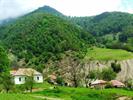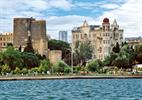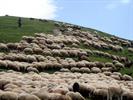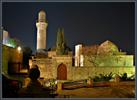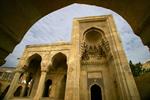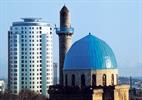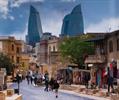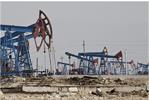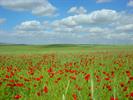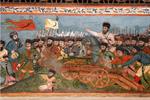Neither Europe nor Asia, Azerbaijan is an incredible tangle of contradictions and contrasts. It’s a fascinating nexus of ancient historical empires. Azerbaijan has for centuries been regarded as the threshold of Western civilisation and Eastern tradition. It is a country in which people with diverse backgrounds, religions and languages have struggled to live together, forging a national identity that is always somewhere in between East and West. Azerbaijan is probably where the Vikings came from, and definitely has the most mud volcanoes in the world. Sundry Nobels and Rothschilds made their fortunes on Baku oil and helped to found the world's first oil and gas industry here. Azerbaijan was, in 1918, the world's first Islamic democracy. Today, it’s a new nation finding its feet as it emerges from a war-torn post-Soviet chrysalis on a petroleum-funded gust of optimism. Surrounded by semi-desert on the oil-rich Caspian Sea, the nation’s cosmopolitan capital, Baku, is a dynamic boomtown, where flashy limousines and mushrooming skyscrapers sweep around a picturesque Unesco-listed ancient core.
The most rugged terrain is in the Southeast of Azerbaijan, which of the three Caucasian states has the greatest land area. Azerbaijan is dominated by the shoreline of the Caspian Sea, the Caucasus mountain range, and flatlands in the middle of the country. Landscape is characterized by dramatic elevation changes over short distances, from lowlands to highlands, with nearly half of the country considered mountainous. The word Azerbaijan is a distortion of the Greek word Atropates, given by the successors of Alexander the Great to the region of ancient Iran and inhabited by mysterious people known as the Albans. The word Atropates means “protected by fire,” a reference to the fires in the Zoroastrian temples and to the to natural burning of surface oil deposits. Although the Albans disappeared from history, each and every ethnic group now present in the region claims ties to their ancient heritage.
Citrus fruits, tea, and rice are grown in the lowlands, while the slopes are covered with vineyards and orchards. Besides being a major producer of grapes, Azerbaijani agriculture is known for olives, saffron, pomegranates, nuts, vegetables, figs, and the sesame plant for seeds and oil. The fishing industry is important to the economy, with the catch consisting mostly of herring, carp, and sturgeon roe that is processed into caviar. Agriculture is the second largest industry after petroleum exploration, processing, and transportation, which is the backbone of the Azerbaijani economy.
Azerbaijan travel agency “Azerbaijan24” invites you and your friends to visit this wonderful country
Yet barely three hours’ drive away lies an entirely different world: timeless villages clad in lush orchards from which shepherd tracks lead into the soaring high Caucasus mountains. Where Baku is multilingual and go-ahead, the provinces shuffle to the gently paced click of nard (backgammon) on tree-shaded teahouse terraces: women stay home, herds of cattle wander aimlessly across highways, and potbellied bureaucrats scratch their heads in confusion on finding that an outsider has wandered into their territory.
Fascinating Azerbaijan has an incredible wealth of scenic contrasts, is famous for caviar and carpets and has curiosities from bizarre mud volcanoes to perpetually-burning fire temples. With amazingly varied landscapes that encompass painted deserts, vineyards, orchards, oak woodlands, snow-capped peaks, iron-wood forests, hilltop castles and magnificent canyons Azerbaijan clearly has a bright tourist potential. But as yet just a few westerners seem to ever heard about the country and can vaguely imagine its approximate location.
Visiting Azerbaijan without doubt will be an absolutely new experience to you. In many areas you may still be among the first foreign visitors locals have seen in generations. Explore Azerbaijan - the Europe's last tourist dark territory and make the most of this beautiful, varied and under-estimated land.
 2
2 Cost: $40.00
Cost: $40.00 3
3 Cost: $85.00
Cost: $85.00 4
4 Cost: $150.00
Cost: $150.00 4
4 Cost: $140.00
Cost: $140.00 Cost: $250.00
Cost: $250.00 Cost: $590.00
Cost: $590.00 Cost: $500.00
Cost: $500.00 Cost: $1150.00
Cost: $1150.00



